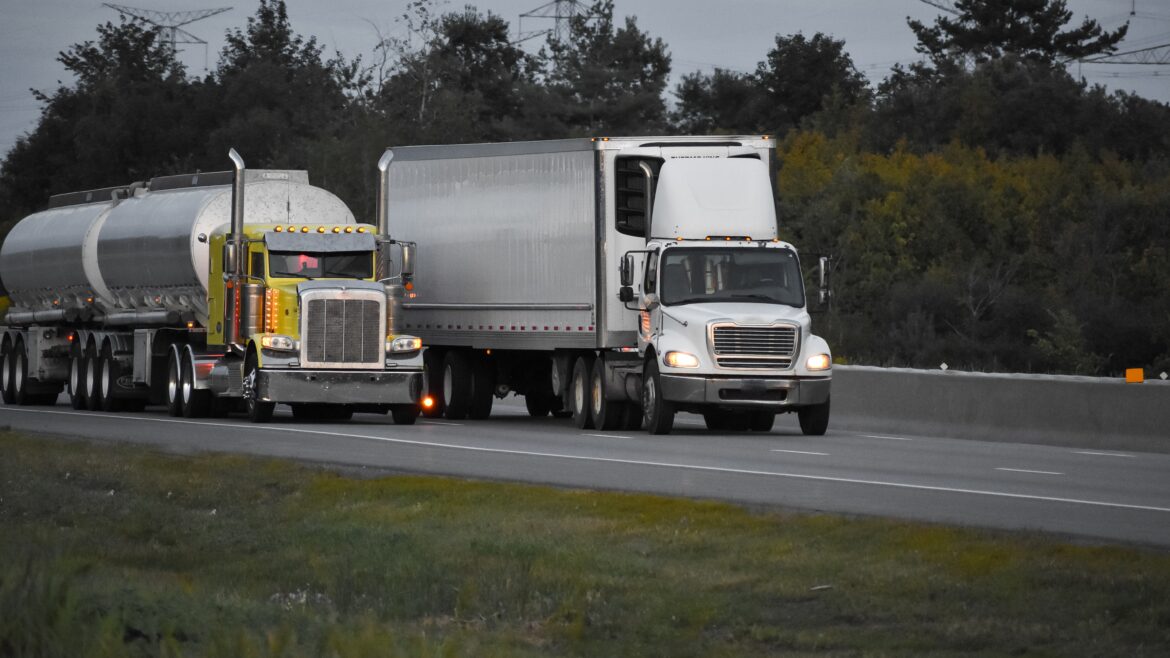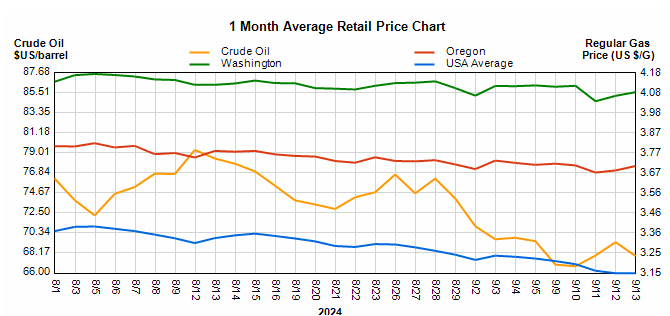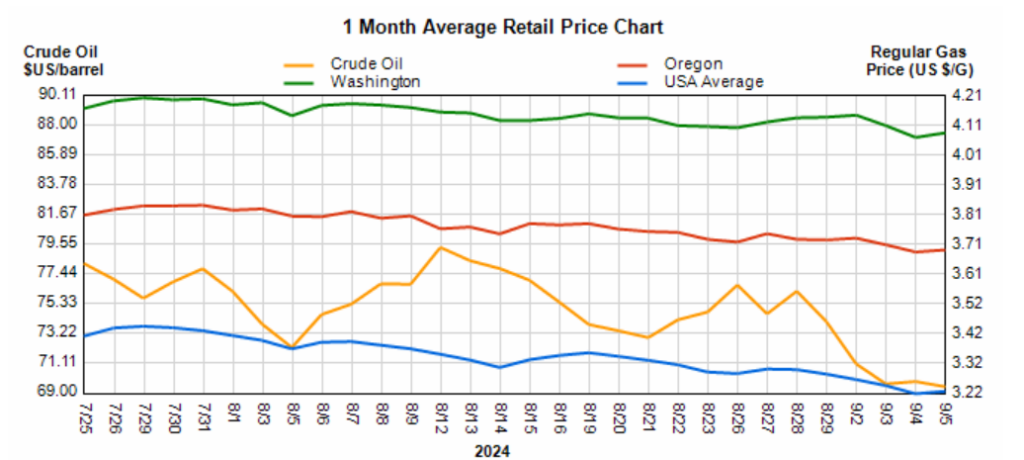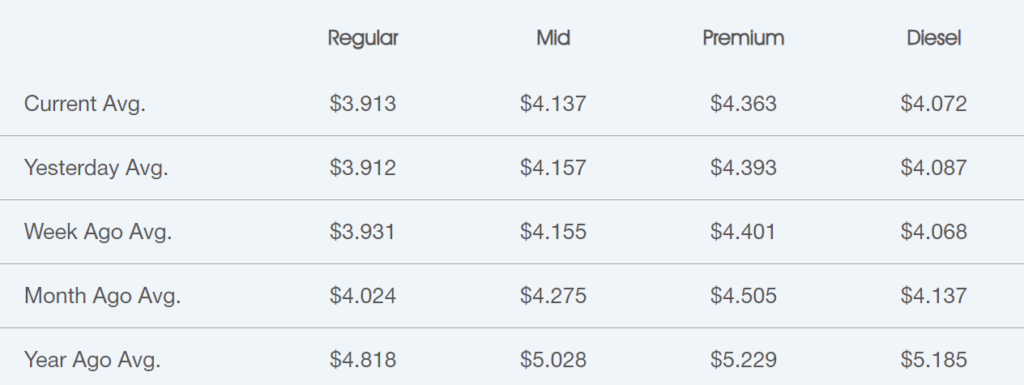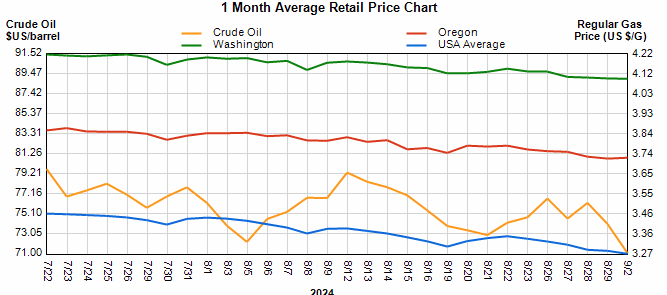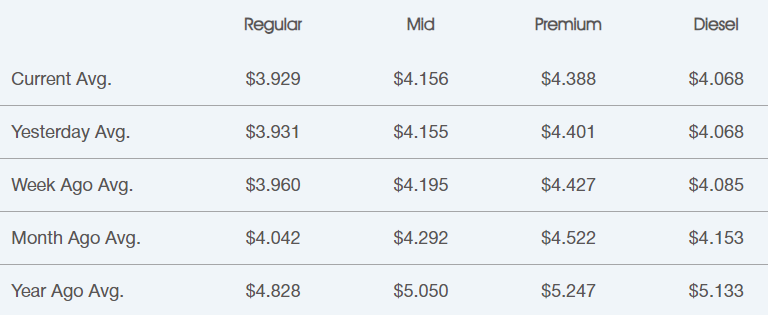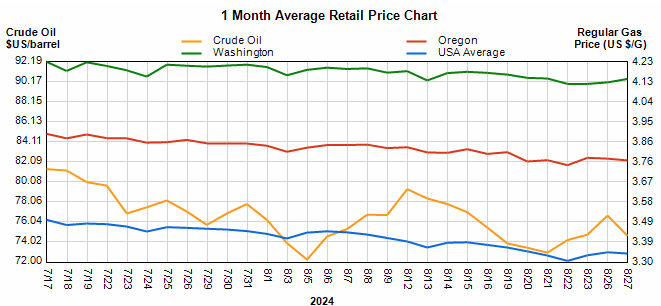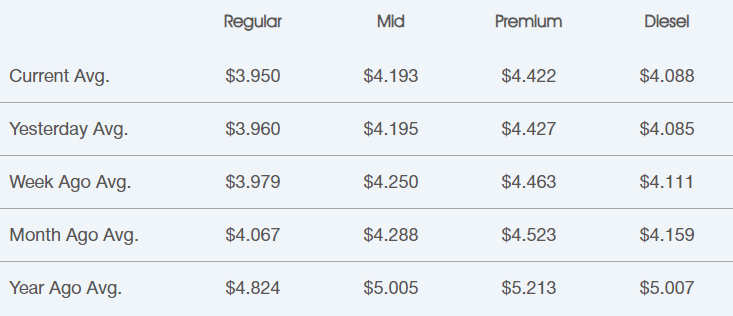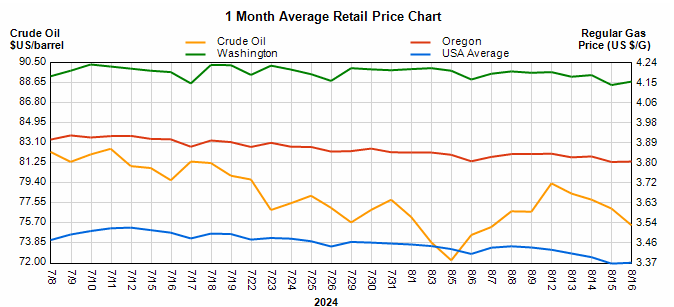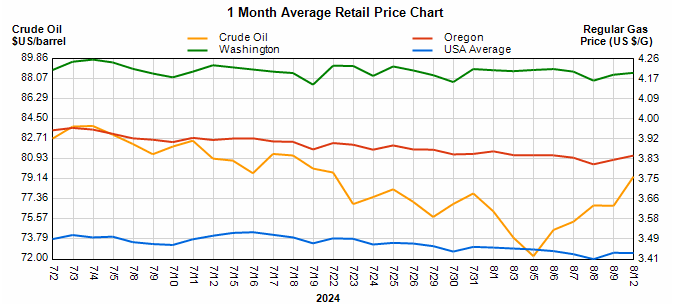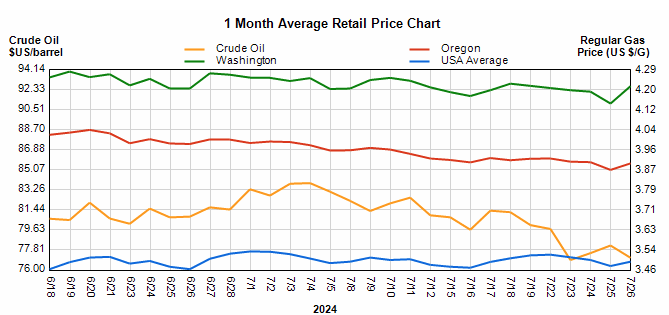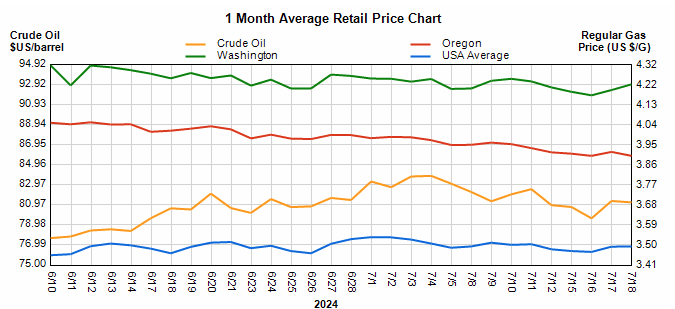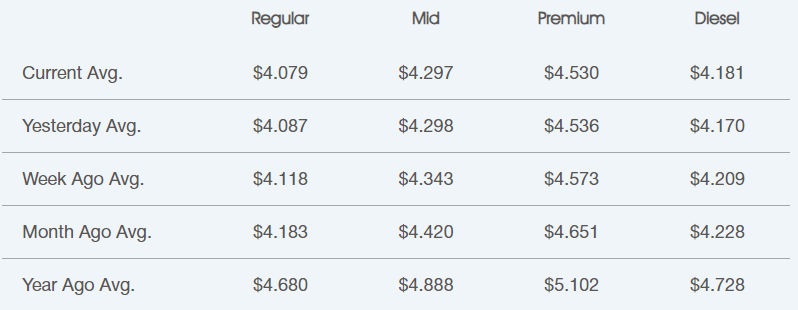Fuel Market Report: Sept 15th – Sept 21st, 2024
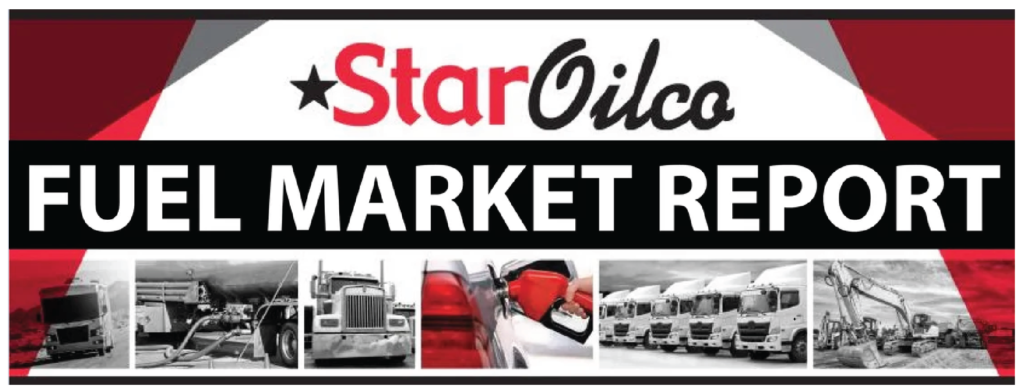
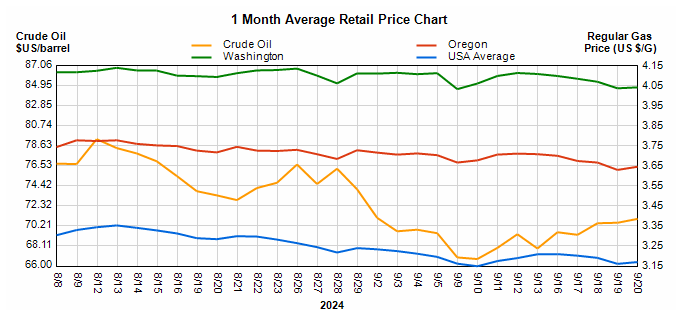
Wholesale Price Average 9/22/24
| Wholesale Low | Wholesale Avg | |
|---|---|---|
| E10 | $2.15 | $2.26 |
| B5 | $2.23 | $2.37 |
| B20 | $2.24 | $2.35 |
Average Retail Prices 9/22/24
| National | Oregon | Washington | |
|---|---|---|---|
| E10 | $3.21 | $3.71 | $4.12 |
| B5 | $3.58 | $3.90 | $4.37 |
Taxes
| Federal | State: OR | Local | State: WA | |
|---|---|---|---|---|
| Gas | $0.184 | $0.40 | $0-.13 | $0.494 |
| Diesel | $0.244 | $0.40 | $0-.13 | $0.494 |
Oregon Fuel Price Variance

Fuel Market News
Fuel prices are down again this past week. Rack averages for E10 fell $0.15/gal while B5 dropped just $0.04/gal and B20 dropped $0.02/gal. The retail market did not see much of these price fluctuations as the retail average for gasoline in Portland dropped just $0.04 while jumping $0.03 for diesel. Refineries throughout California have had their seasonal maintenance in the past weeks which has caused reduced outputs of production affecting Oregon, Nevada, and Washington. September 22nd marked the official beginning of the autumn season. With winter fuel returning to supply within the market, we should see prices continue to drop over the coming weeks.
US crude oil prices dipped below $70/barrel last week for the first time in a year pushing fuel prices lower across the board. There are worries that OPEC+ may delay production increases into the fall which may cause upticks in domestic supply with low demand and further price dips.
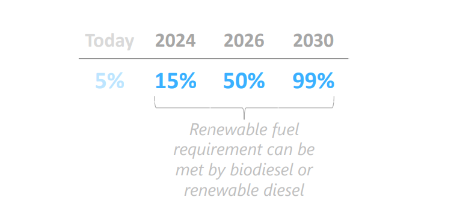
Important Note: Per the City Of Portland, “Distributors in the City of Portland are required to meet the minimum biofuel content requirements for all fuel they distribute beginning on May 15, 2024. All diesel fuel distributed to retail stations, non-retail dealers, or wholesale purchaser-consumers must include a minimum of 15% biofuel content, from either renewable diesel or biodiesel. This requirement increases to 50% on May 15, 2026, and 99% on May 15, 2030”.
Crude oil is trading slightly above $70 this past week, at a current price of $70.45/barrel, as oil prices are at the same level they were last week. This is the first time this year that the market has experienced this.
Crude oil is the main ingredient for gasoline and diesel. Per AAA, on average about 50% of what you pay at the pump is the price of crude oil, breaking down as 25% refining, 11% distribution & marketing, and 14% taxes—a helpful breakdown for consumers wondering why they are paying the prices that they pay. Crude Oil is trading at $70.45/barrel compared to $70.44/barrel, last week and $81 a year ago.
It’s essential to recognize that fuel prices result from a complex interplay of the factors mentioned above and other factors regionally. Additionally, prices may vary by specific regions within Oregon and Washington. For the most precise and up-to-date information on fuel prices and the causes for these price changes within your area, use the links below for AAA & GasBuddy.
If you have any questions, feel free to contact Star Oilco and speak to one of our fuel market advisors to discuss how the market can impact your business.


